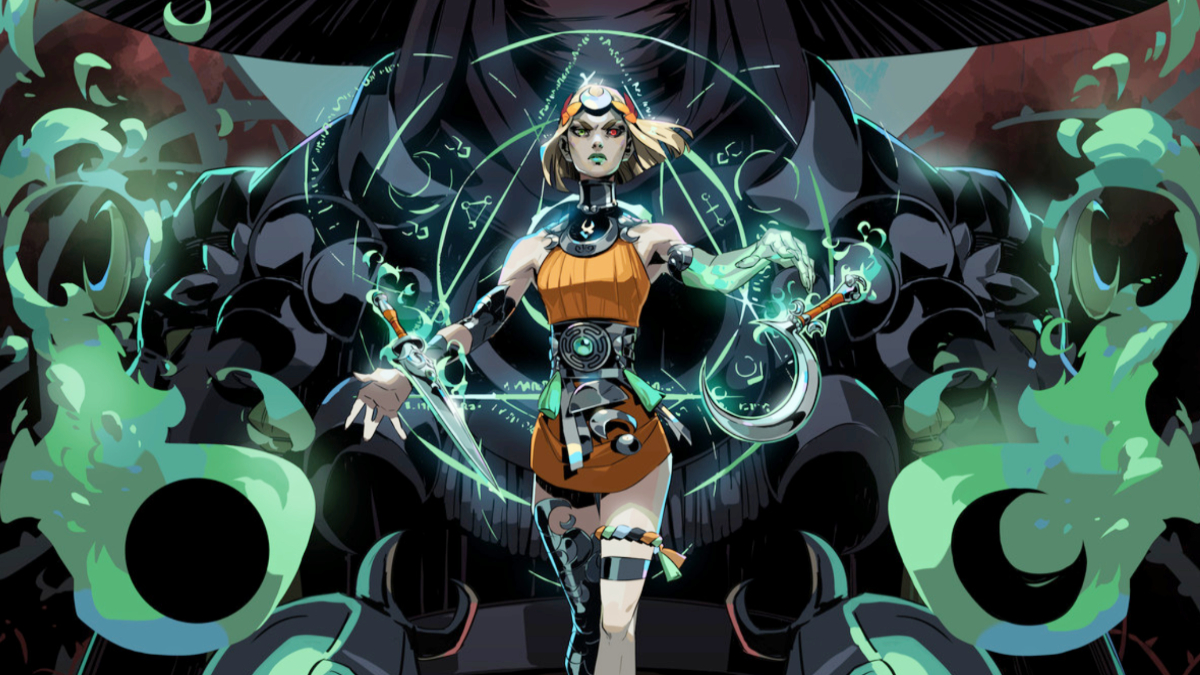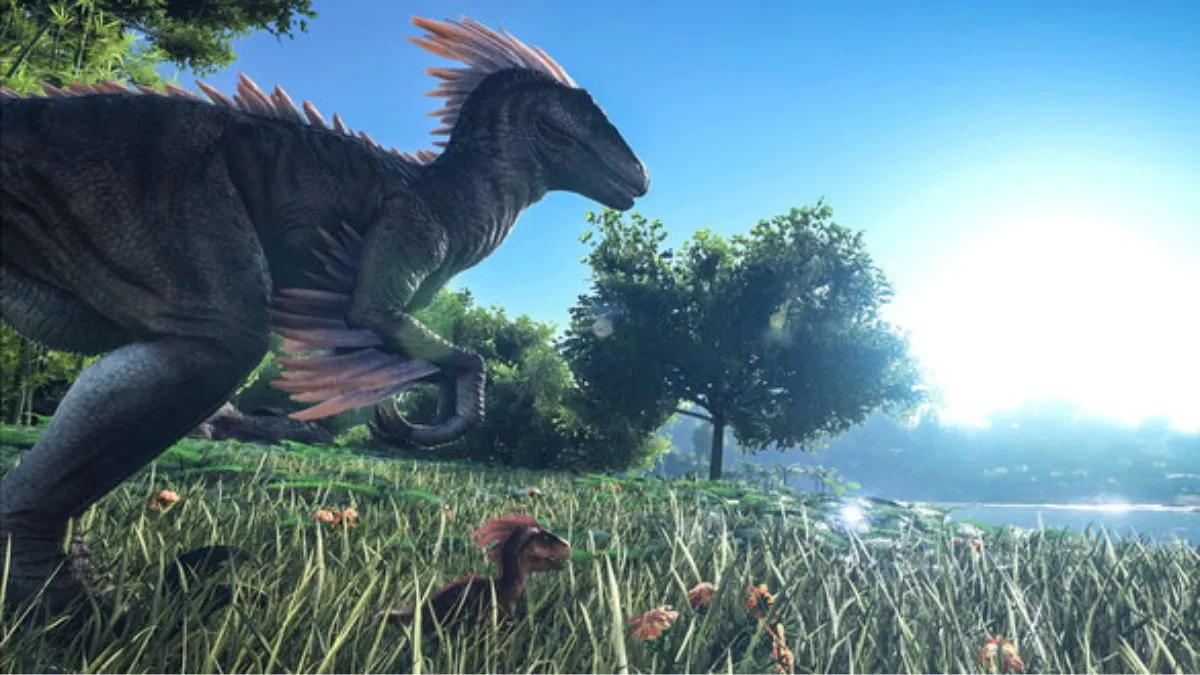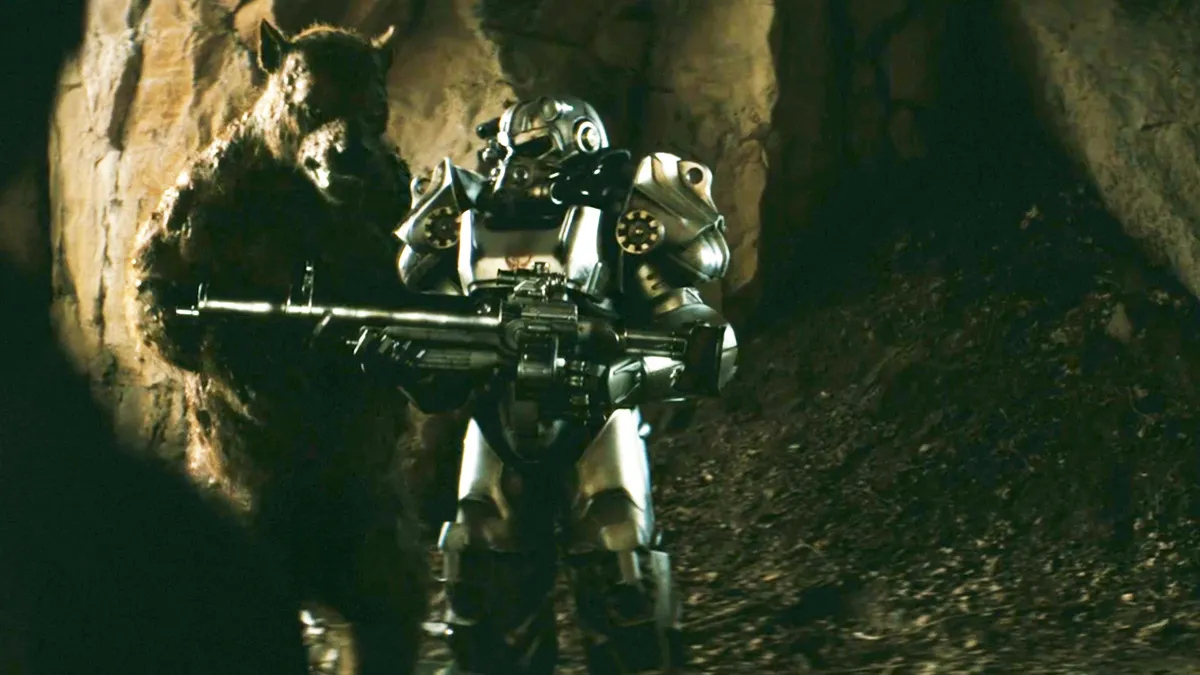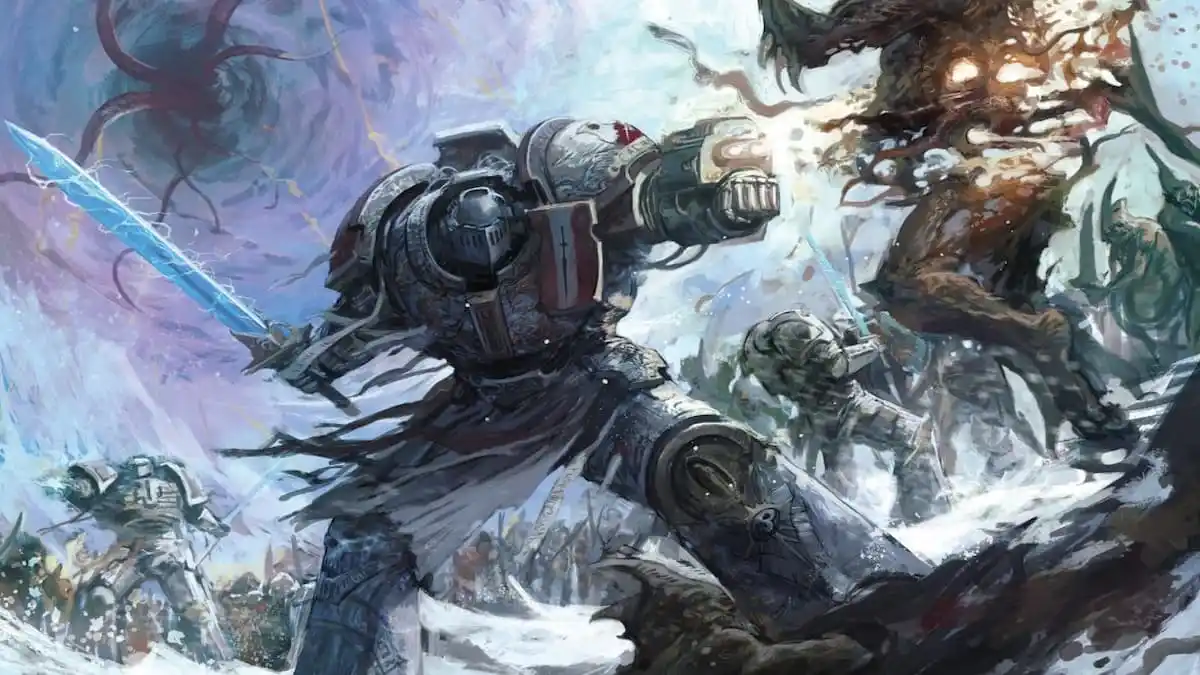The pre- and post-launch chaos of No Man’s Sky has been troubling, to say the least. With bewildering confusion over the game’s single-player nature, and a frankly astounding number of people letting themselves get carried away by the hype machine, I’m afraid the truly special things about Hello Games’ ambitious project might be lost in the shuffle. Now, I’m not going to mince words when it comes to how I feel about it: not everything here is successful, and the game can be downright frustrating when it comes to some of its design elements, but I do think players who go in with the right mindset will find a lot to love.
At its heart, No Man’s Sky is all about the joy of discovery. Featuring a universe of procedurally-generated worlds so large that it’s impossible for any one person — let alone the millions of players that will eventually play it, or even the developers — to visit them all, the excitement of taking a journey through uncharted space sets in immediately. You begin stranded on one particular planet, with several of your items (including your ship) in need of repair. Rather than barrage you with tutorials, though, Hello Games has made the refreshing choice to let you figure things out mostly on your own. You’ll soon discover that harvesting plants and blasting away at minerals with your mining gun will net you the materials you need to fix your items and get your ship into space.
Unfortunately, while this early stage serves as a useful and exciting demonstration of the game’s important concepts, some of the major flaws also become apparent right away. First and foremost, the game’s survival elements are not particularly inspired. While I was wandering around my first planet in search of ship-repairing goodies, I found myself beleaguered with notifications about my survival gear and life support levels dropping.
My heart sank a bit; was my journey through the far reaches of the universe constantly going to be interrupted by a robotic voice saying “Life support system low,” despite its meter being only 25% depleted? Well, having played through the game quite a bit more since then, I can now confirm that these meters aren’t nearly as annoying as they first appear to be. Materials to refill them abound, and charging them back up is as simple as a few button presses. Still, they don’t add a whole lot to the experience, even if the occasional radiation-heavy planet can make the race back to your ship a harrowing one.
Another irritation that rears its ugly head early: inventory management. This has never been something I’ve found fun, and that hasn’t changed with No Man’s Sky. At the very least, it’s nice that you’re able to transfer things back and forth between your exosuit and ship so easily, but I ran out of space for both of these within my first hour. And when you’re juggling as many materials as this game requires, both to fuel the ever-dropping meters of your devices and to craft new and useful items, this gets old fast. There are ways to expand your inventory, but that’s not exactly clear until you find one of the items that does it — and even with these upgrades, the fact remains that sifting and sorting through the blocks of items in your inventory isn’t all that enjoyable.
The game revealing two of its most frustrating aspects immediately turned out to be sort of a blessing, though, because it gave me time to form strategies around these problems while I started to experience the really good stuff — namely, the sense of discovery that’s already made No Man’s Sky an infectious hit on social media.
Once you’ve gotten your head around all the important systems and begun to fly, the thrill of visiting new planets and finding out what they have to offer is exhilarating. The possibilities for this becoming a project driven mostly by its passionate community — much the way Pokémon Go took off in spite of serious flaws — is the most exciting opportunity as far as I’m concerned. Diversity podcaster Kahlief Adams, for example, has already taken it upon himself to start a fan-driven content curation site called All Our Skies; this is the sort of initiative that I think will add significant longevity to this ever-expanding universe.
For my part, I can’t say I’ve gotten tired of exploring in the slightest. A Metroid Prime-esque scanning system rewards you with cash for logging your discoveries, which bolsters the audiovisual excitement of finding new flora and fauna. In fact, despite not being nearly as objective-oriented as Retro Studios’ series, I found a lot of similarities between the appeal of Samus’ first-person adventures and this particular journey.
The sense of isolation that can make or break a space-themed game is here in full force; on the more aggressive planets, it’s pure horror, and on the more tranquil ones, you can have a truly relaxing experience. I’m not sure everyone will be enamored with traipsing around the randomly-generated planets — to be fair, the pattern of scattered discoverable elements becomes obvious pretty quickly — but for those of us who can get caught up in the little details, it’s a feast for the eyes and ears.

I may have taken issue with the inventory system, but I don’t want to give the impression that all the traditionally “game-y” elements of No Man’s Sky are lackluster. On the contrary, finding recipes, collecting materials and learning the languages of the various alien races can be quite an addictive prospect. The main “story” thread (if it’s even appropriate to call it that) pulling you toward the center of the universe is interesting, too, giving you just enough information to keep your attention while keeping things tantalizingly mysterious.
Whether or not you enjoy these elements is really going to come down to how self-motivated you can be in such a massive open world; there are still waypoints to chase down, but which ones you should go after aren’t spelled out in flashing neon letters here. Personally, I find that a refreshing change of pace, but I respect that others might dislike the lack of direction.
If I have one more major gripe, it’s with the combat, which is the one thing I’d have removed immediately if given the choice. The idea of having battles while soaring around infinite space was originally appealing to me, but that feeling evaporated as soon as I got a taste of actual battle. No, this isn’t even close to the worst I’ve experienced, but it stands so far apart from what makes the game enjoyable and even works against its more successful aspects.
On several occasions, I found myself crushed by a randomly-appearing enemy while on the way to a neighboring planet; each time, this meant an infuriating forced trek back to my “grave” in order to pick up the items I lost from my inventory. The same thing can easily happen while hoofing it around the planets and moons, too: pesky Sentinels are always on the watch for destructive actions, launching you into a firefight if they catch you. Even when I won these encounters, I couldn’t help but feel irritated that I’d been thrown off my groove while exploring.
Can you blame me, though? The developers at Hello have made No Man’s Sky the best kind of audiovisual assault, with Grant Duncan and Jacob Golding’s art direction filling the screen with an anarchic blend of vibrant colors alongside a fuzzy, ethereal electronic score by 65daysofstatic and Paul Weir. The procedural generation may not always yield the most cohesive-looking results, but that’s part of the fun — personally, I can’t wait to see some of the truly bizarre creatures and planet layouts shared by fellow players.
While I’m discussing the presentation, I do have to mention that there are some significant technical issues in the PS4 version of the game, including pop-in poorly disguised with a grainy effect and some instances where framerate can drop significantly. I never encountered anything that totally broke my immersion, but I’m a bit on the forgiving side when it comes to performance issues. Your mileage may vary.
Overall, No Man’s Sky is a bold experiment in game design, and one I’m glad Hello Games took the opportunity to make. I can see some players taking issue with the utter lack of direction, but I personally found it a refreshing divergence from the usual hand-holding present in open world titles. The real beauty and appeal of the experience is in the discovery of the procedurally-generated worlds and the life forms that populate them, and I can’t wait to see what other players find.
There are some issues here that drag the proceedings down: unnecessary combat sections and cumbersome inventory management killed my enjoyment on more than one occasion, and the survival elements feel tacked on. Still, for those who tend to get caught up in the littlest of details, this ambitious indie provides a sprawling universe full of them. It’s a messy universe, to be sure — but in that regard, it’s not much different from the one we call home.
This review is based on the PS4 version of the game, which we were provided with.





















